Social and ecological crises have gradually forced companies to claim a common interest. They have used whatever means possible, sometimes following, sometimes taking the lead from public authorities. Private labels have multiplied, as have certifications, such as the “mission-driven company” of the Notat-Senard report, the “ESUS” label for socially responsibly businesses, or the American private label “B-Corp”, whose certification is being officially sought by Danone. Notions of “raison d’être” and For Good labels haunt entrepreneurs. It is no longer enough to be profitable; you also have to be fair, green and ethical. Surely everyone supports these causes – or at least claims to. And yet, For Good for all has proved to be a disaster in this very legitimate search for meaning: some companies, focused on their activities, limit themselves to a mere display; others may be For Good for the customer, but not for employees or suppliers; yet others can be good for humanity, but not for the planet. We knew that hell was paved with good intentions; we’re now discovering version 4.0.
The top prize for paradoxical Good undoubtedly goes to web giants such as Facebook, which is regularly singled out for illegal data collection, and Google, number one in the “Big Brother” category, but whose motto is “Do no evil” … The case of Amazon is even more telling. Its vision is “To be the earth’s most customer-centric company.” Offering as many goods as possible, delivered as fast as possible. Amazon also claims to be carbon neutral ten years ahead of the Paris deal. But the flip side is deserted city centers, hyper-growth to boost stock market value, an employee relationship that has been replaced by a commercial relationship, evidenced by its “click workers” paid just $ 3.30 per hour, or by its delivery personnel who are pushed to the limit. Worse still is the virtual and physical quasi-monopoly it seeks to achieve with Amazon Web Services, the most strategic and profitable of its activities. The rampant privatization of a common asset is hardly the definition of public interest … Civic vision, economic and democratic pluralism would all call for the dismantling of such a giant.
Let’s look at a different sector and consider food labels. The cheeses of Aubrac have obtained protected designation of origin label (PDO). Unfortunately though, cows of this breed have a below average milk yield. And we want volume! So, the label chose to focus not on the origin of the milk, but on the production process. Suddenly, authentic Aubrac cheese no longer corresponded to the labeled taste, and found itself rejected by its own label … Some cheeses, such as Comté, have benefited enormously from their PDO label, but this is not always the case, as we see with the Camembert label … Similarly, the term “organic” does not mean much anymore, thanks to imported products that appear increasingly dubious when questionable carbon footprints and suspect lists of ingredients are taken into account. A question of Bad masquerading as good! For Good cannot be limited to those at the top of the class who do what they can, solely from the point of view of the company or its sector. Airbus wants to reduce the fuel consumption of its flights, but surely the best thing for the planet would be to reduce global mobility. Total promises us the cleanest possible energy, but wouldn’t it be best to abandon fossil fuels? These would-be virtuous performers do not make clear choices. They have not understood that competition will ultimately come from elsewhere, and that it is better to instigate one’s own disruption than to be disrupted by others. Aviation may conceivably be brought to its knees by a genius urban planner who finds a way to give back to city dwellers the joy of urban living, or who proposes solutions for living and working in the countryside, thereby ending compulsive mobility.
To be worthy of the name, For Good must be by design, reconciling the good of the company with what is best for society.
To be worthy of the name, For Good must be by design, reconciling the good of the company with what is best for society. This will require a major managerial upheaval that will affect the entire value chain and take on the economic environment. The Veja sneakers brand is a good example, having dared to forgo advertising and marketing. For Good must also be more than an entrepreneurial concern, and needs to involve inspiring leadership, of the sort that someone like Emmanuel Faber might provide. In the meantime, how many managers are just talking the talk, without walking the walk?
Under these conditions, For Good will emerge from simplistic opportunism to start delivering real business models, both virtuous and competitive, that find a way of switching to a holistic vision of the common good.
